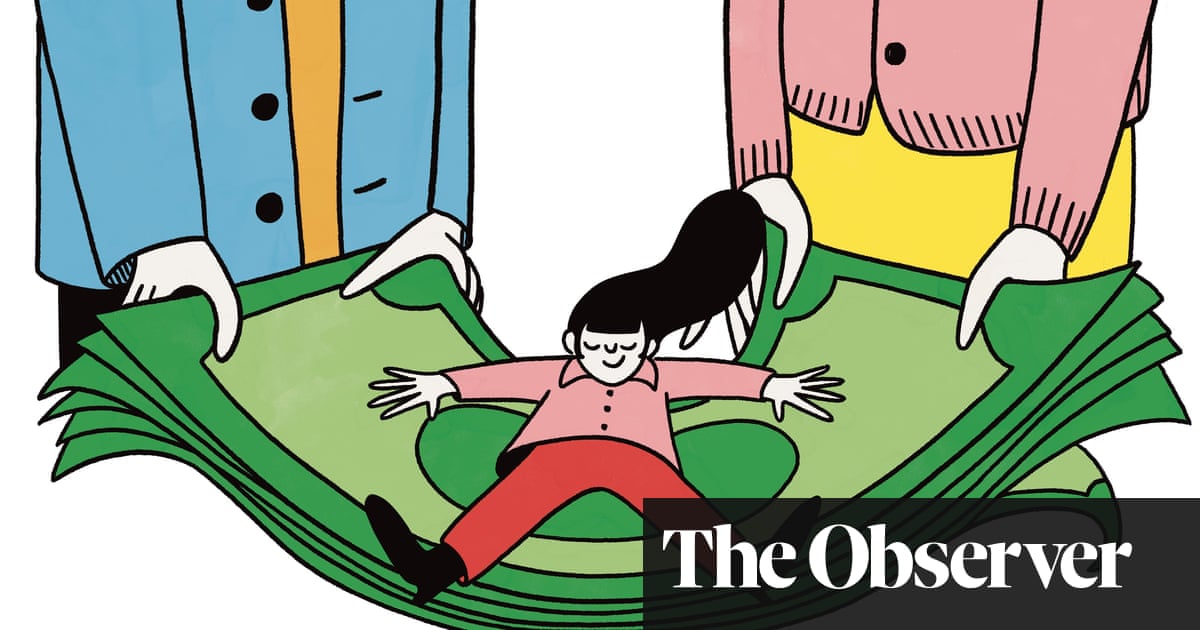- cross-posted to:
- [email protected]
- cross-posted to:
- [email protected]
You know the Bank of Mum and Dad when you see it: it’s your friend who seems broke, but always has a safety net, or who suddenly (but discreetly) acquires the deposit for a home. It’s those who stayed with their parents while they saved for a flat, or stuck it out in a profession they were passionate about even though the wages are chronically low. It’s those who do not need to consider the financial costs of having children. It’s those whose grandparents are covering nursery or university fees, with the Bank of Grandma and Grandad already driving an economic wedge between different cohorts in generations Alpha (born between 2010 and 2024) and Z (born in the late 1990s and early 2000s).
This is the picture we know, but the Bank of Mum and Dad is not just a luxury confined to the 1% – it is also evident in families like mine. I grew up in a working-class household and was the first person in my family to get a degree, but it was the fact my parents had scrimped in the 1980s to purchase properties in London (and allowed me to crash in one throughout my 20s) that has arguably been the true source of opportunities in my life.
In recent years, we have rightly widened the conversation about privilege in society. And yet how honest are we about one of the most obvious forces shaping anyone under 45: the presence or absence of a parental safety net? The truth is that we live in an inheritocracy. If you’ve grown up in the 21st century, your opportunities are increasingly determined by your access to the Bank of Mum and Dad, rather than by what you earn or learn. The economic roots of this story go back to the 1980s, but it accelerated after the 2008 financial crisis, as private wealth soared and wage growth stalled. In the 2020s, rather than a meritocracy – where hard work pays off – we have evolved into an inheritocracy, based on family wealth.



Counterpoint: there are so many things a person could be doing that are far far more valuable to society than bullshit “profitable” work, and those things don’t pay, or pay very poorly. You think being required to earn basic existence in life is better, even though the vast majority of jobs are entirely pointless and/or could easily be automated? Such a shameful waste of human potential.
If people had all the time in the world to do what they wanted, most people would still work at least part time, but it probably wouldn’t be for shitty megacorps that treat employees like trash (and those companies deserve to die). Some people would choose to only do community improvement stuff, though, like beautification, guerrilla gardening, or helping to build/remodel community spaces. And that’s actually awesome. We need way way more of that, and less of developers/companies coming in and doing whatever they can to extract money from the community.
They do it now, when they have time or it’s directly beneficial to them, but volunteering is an inherently privileged activity. Poor people don’t have time or energy because they have other shit to do to be able to afford to survive.